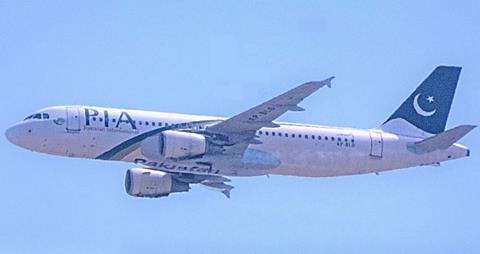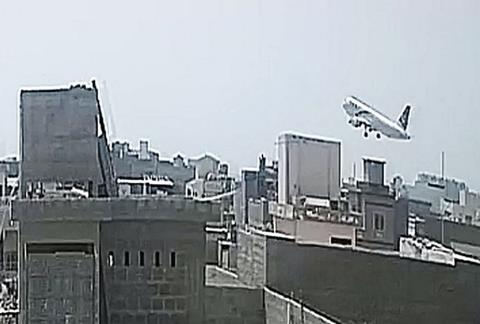Pakistani investigators have disclosed that the pilots of an Airbus A320 which fatally crashed in Karachi had been fasting for the holy month of Ramadan, and that this probably impaired their judgement.
But the inquiry has been unable to determine whether the effects of fasting had any specific consequences on the crew’s performance.
The Pakistan International Airlines aircraft had conducted a highly-unstable approach to the airport, ultimately striking the runway with its landing-gear still retracted. Its crew attempted a go-around but the impact damage to the A320’s engines caused it to lose thrust and height, and it came down in a residential suburb of Karachi.
Investigators point out that the 22 May 2020 accident occurred during Ramadan, a month in which followers of Islam practice fasting during daylight hours.
But the inquiry’s final report states: “Clear and precise regulations were not available to restrict flying while fasting at the time of accident.”

Pakistan’s civil aviation authority prohibited the practice of flying while fasting in the aftermath of the crash which only two of the aircraft’s 99 occupants – both passengers – survived. One additional fatality occurred on the ground.
Both pilots of the A320 were participating in the fast for Ramadan. Each had a regular sehri and iftar – morning and evening meals, eaten before sunrise and after sunset – and declined snacks from the cabin crew.
The inquiry states that fasting may affect a crew’s flight performance by reducing spatial cognition and lowering blood sugar or hydration. It adds that it may “invert” normal day-night routines, affecting circadian rhythms and general health.
“Judgement of both flight crew was probably impaired due to the effects of fasting while flying,” says the inquiry.
“However, its consequence on flight performance of the flight crew could not be determined.”

At the time of the crash the civil aviation authority’s regulations left the decision on fitness to fly during fasting to the judgement of individual pilots.
Although the authority revised its rules on flight duty, rest periods and fatigue management in 2021, to forbid flying while fasting – and issued directives on the ban – the inquiry states that its aeromedical regulations remained unchanged and contain “different instructions” which “may create ambiguity”.
Feedback mechanisms between operators and regulators, it adds, are “not clear”.
The authority has advised crews seeking to fast during Ramadan to apply for leave, and instructed operators to facilitate such measures. It has also issued aeromedical advisories stating that cockpit and cabin crew should consume at least a glass of water, juice or soft drink prior to operating flights.
Pakistan International Airlines’ operations manual includes detailed guidelines on crew health and nutrition, says the inquiry, as well as procedures for taking meals and fluids in the cockpit. But it states that the minimum duration windows and timeframes of regular meals are not specified.


























